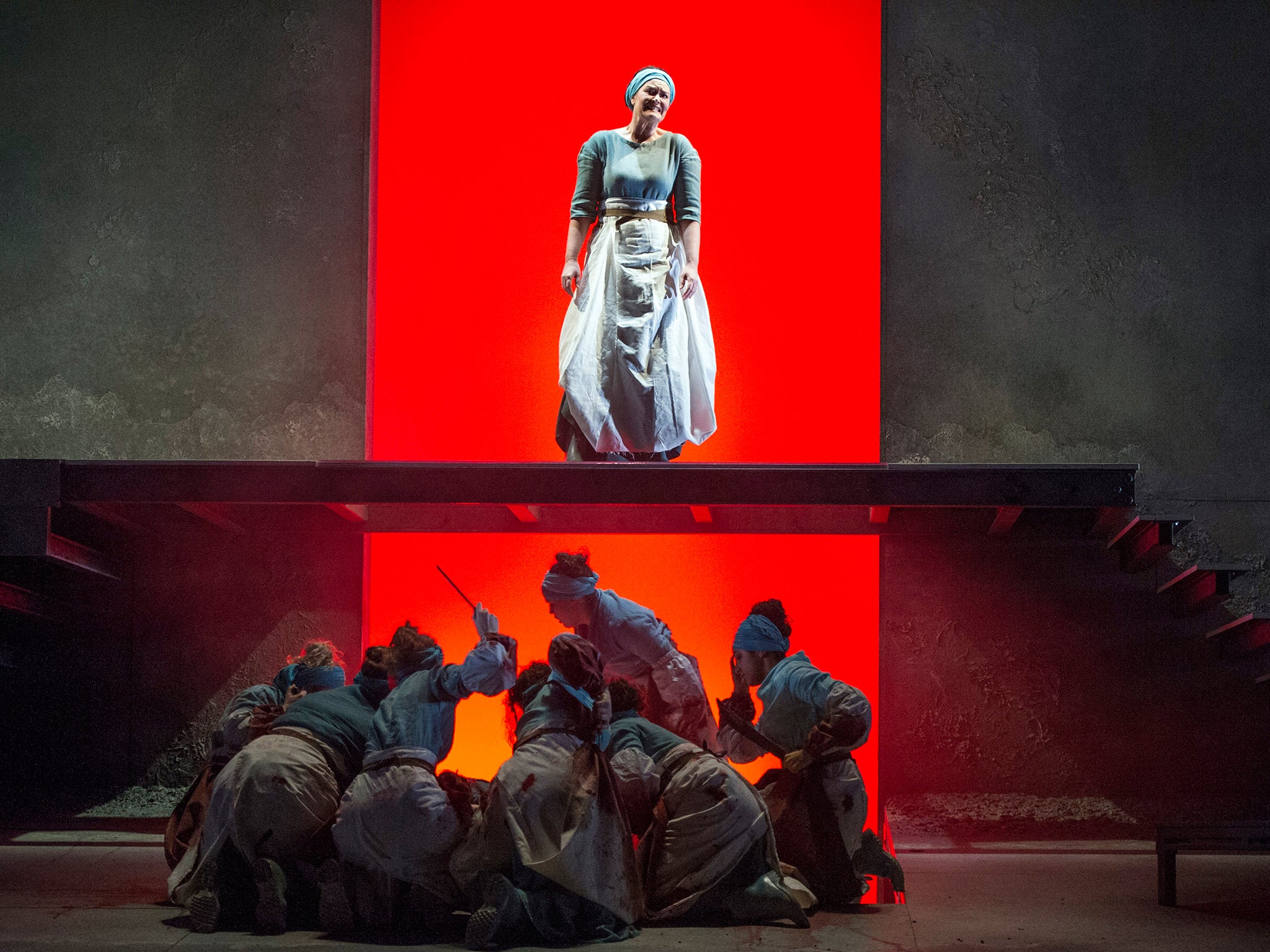Iphigenie en Tauride, Hackney Empire, review: Catherine Carby sails through title role with effortless grace
Director James Conway honours the sublime beauty of Gluck's work splendidly in almost every respect

Your support helps us to tell the story
From reproductive rights to climate change to Big Tech, The Independent is on the ground when the story is developing. Whether it's investigating the financials of Elon Musk's pro-Trump PAC or producing our latest documentary, 'The A Word', which shines a light on the American women fighting for reproductive rights, we know how important it is to parse out the facts from the messaging.
At such a critical moment in US history, we need reporters on the ground. Your donation allows us to keep sending journalists to speak to both sides of the story.
The Independent is trusted by Americans across the entire political spectrum. And unlike many other quality news outlets, we choose not to lock Americans out of our reporting and analysis with paywalls. We believe quality journalism should be available to everyone, paid for by those who can afford it.
Your support makes all the difference.Over the next four months, English Touring Opera will visit every corner of England with a variegated trio of productions, the first of which is a new staging of Gluck’s Iphigenie en Tauride under James Conway’s direction. And if you want to hear world-class singing, that’s what you’ll get from mezzo-soprano Catherine Carby in the title role.
The drama tales place on a severe and unchanging rectilinear set, with the characters either perpetrating ferocious violence or forming tableaux suggesting a series of neoclassical French paintings. We don’t see the sacrificial victim as priestesses ritually disembowel him during the overture, but the violence is shocking, as it is when Oreste (Grant Doyle) and Pylade (John-Colyn Gyeantey) are tortured by a sansculottish gang prior to their threatened execution: what Conway creates here is chillingly evocative of those Middle-Eastern Youtube videos which sane people now shun like the plague.
There is one controversial reading of the text: Conway believes that the bond between Oreste and Pylade is sexual, rather than chastely heroic, which gives their onstage relationship a very physical immediacy. One can only speculate how Gluck would have reacted to this, but in every other respect the sublime beauty of his work is splendidly honoured. The male and female choruses sing with purity and blazing conviction; Carby sails through her hugely demanding role with seemingly effortless grace.
Join our commenting forum
Join thought-provoking conversations, follow other Independent readers and see their replies
Comments